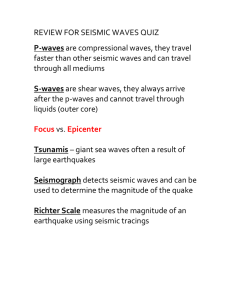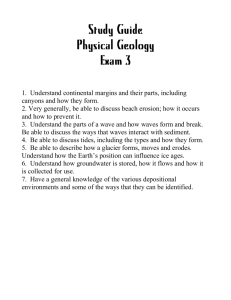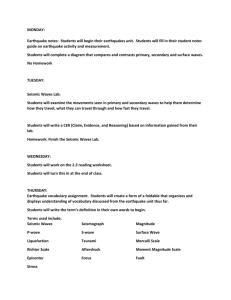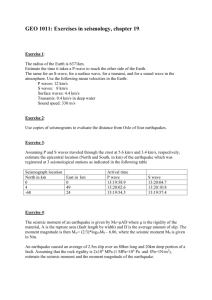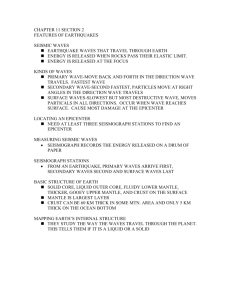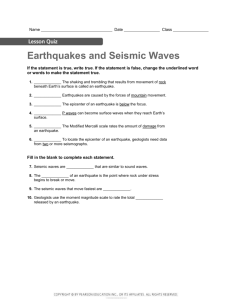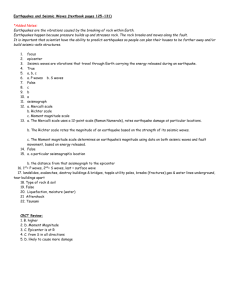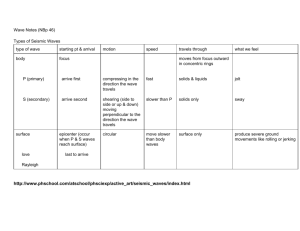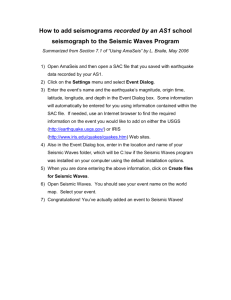Anatomy of an Earthquake
advertisement
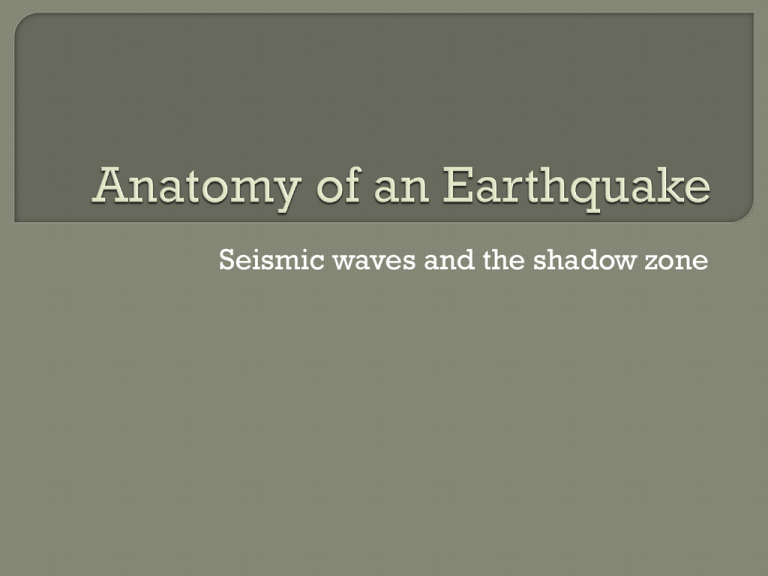
Seismic waves and the shadow zone Sudden release of energy in the Earth’s crust and creates seismic waves. • Occurs naturally or human induced. Faulting: most common cause of earthquakes Focus: Point below the surface where rocks break and move (underground point of origin) Epicenter: Directly above the focus at surface (most violent shaking occurs here) Three types of seismic waves • 1. Primary (P waves) • 2. Secondary (S waves) • 3. Surface (L waves) P • • • • waves S • • • • waves Fastest Travel through solid, liquid, and gas Push pull waves Moves through the core and faster through dense material Arrive after P waves (slower) Travel only through solids Particles move side to side Shake waves L waves • Slowest • Originate at the surface (epicenter) • Move up and down like ocean waves • Cause the most damage A shadow zone is an area of the earth that is "shadowed" by the planet's internal structure, in that it doesn't receive seismic waves. Seismic waves will bend and reflect at the interfaces between different materials • P waves will travel and refract through both fluid and solid materials. S waves, however, cannot travel through fluids like air or water. Seismographs waves Seismograms record earthquake show: • Amplitude of seismic waves (how much rock moves or vibrates) • Distance to the epicenter • Earthquake direction • P & S waves used to calculate magnitude of earthquake • Amplitude = height of wave (how much the rock moves; size of vibration) P & S (body waves) move through earth & arrive first Exact location can be known by using three seismic stations or triangulation. The time interval between the arrival of the first P wave and S wave determines distance to epicenter. • The longer the “lag” the farther away the epicenter is. Intensity Scales: measure the degree of shaking and amount of DAMAGE done • Modified Mercalli Magnitude scale: relies on calculations of estimated energy released by seismic waves. • Richter Scale • Moment Magnitude scale Increases by a factor of 10
